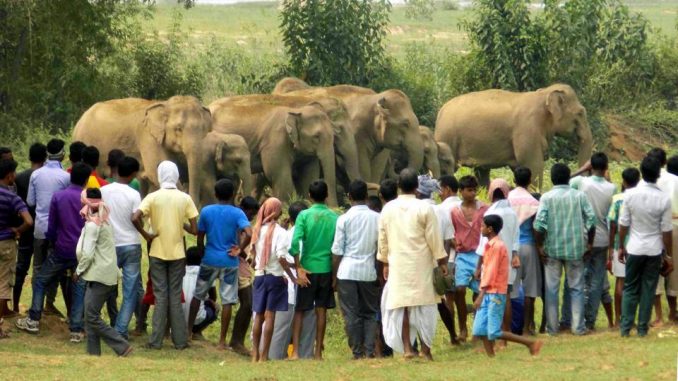
By Nihi Sharma
The Wildlife Institute of India has been asked by the Union forest ministry to focus on contraceptives for four animals — monkeys, elephants, wild boars and blue bulls or nilgais.
The Centre has asked Dehradun-based Wildlife Institute of India (WII) to develop contraceptives for wild animals, as states struggle to check growing man-animal conflict.
The ministry of environment, forest and climate change (MOEFCC) has asked the institute to focus on four animals — monkeys, elephants, wild boars and blue bulls, or nilgais as they are known in northern India.
“We will develop drugs, test them in controlled conditions and thereafter use them on the identified animals,” WII director VB Mathur said on Friday.
As many as 1,144 people were killed by animals between April 2016 and May 2017, MoEFCC data says, highlighting the conservation challenge India faces as the wildlife habitat shrinks.
To develop the contraceptive, the WII will have to set up a lab for research and development, a first for the institute.
WII scientist Qamar Qureshi, who is leading the MoEFCC project, said they were working on a drug easy to administer and would have a lasting effect.
Every year, crops standing in hundreds of acres are destroyed by animals looking for food. Efforts by people to protect their farmland often lead to fatalities on both sides.
Monkeys are a huge problem in Uttarakhand, Uttar Pradesh, Himachal Pradesh and Delhi. From time to time, the ministry has declared them as vermin, allowing cull in some states for a limited period but not much has come of it.
In South, bonnet monkey — a macaque species — is causing problems.
North Bengal, Kerala and Karnataka are reeling under elephant conflict and no state has so far taken steps to control the population of the giant animal, experts at WII say.
Farmers in the Himalayan states face wild boar while blue bulls cause extensive crop damage in states such as Rajasthan and Gujarat.
“Contraception could help to a certain level but we should also consider the fact that the habitat of animals has also been encroached. The elephants are one such example,” wildlife conservationist Belinda Wright said.
Separately, WII is working on a project with the Uttarakhand forest department to contain the monkey population. A departmental survey in 2015 had put the number of monkeys in the state at 150,000.
Sterilisation is already on but trials of vaccines of zona pellucid, which has to be imported, are yet to begin. Delhi-based National Institute of Immunology is working on an oral contraceptive under the pilot project.
Source: Hindustan Times

Leave a Reply